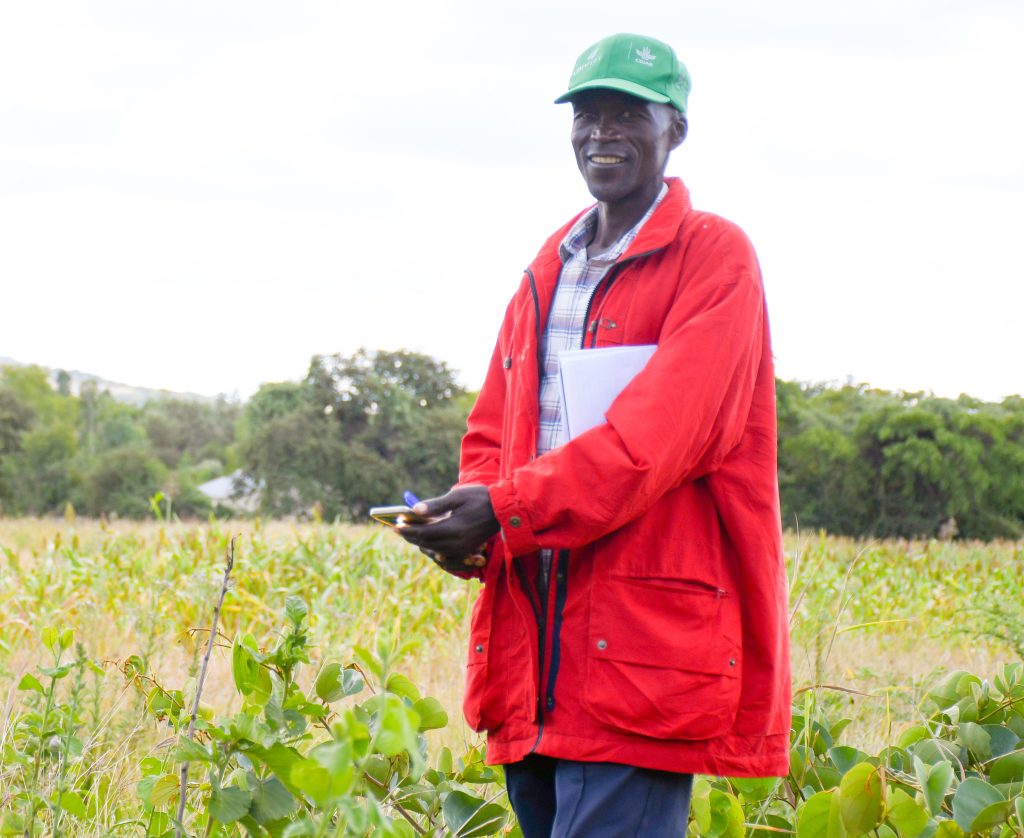
Unganai Murwisi (52), a father of four and small-scale farmer from Mushumbi in Mbire district in the northern valleys of Zimbabwe has defied the odds by producing surplus grain despite the El Niño induced drought that affected the 2023/2024 farming season.
“This year was a tough year for most farmers because there was very little rainfall, many crops wilted and died due to the dry and hot conditions. However, I managed to produce enough food for my family and was left with surplus grain for future use,” says Unganai.
“I was able to harvest over six tonnes of traditional grain, compared to last year where I had less than 3 tonnes. Although my maize did not do very well, I managed to salvage 2 tonnes of maize. Despite the poor rains, I harvested pearl millet and maize as well as groundnuts and some bambara nuts,” he adds.
Unganai credits his success to adopting agroecological practices.
“I credit my farming success to the trainings on agroecology that we receive from Bio-Hub Trust and farmer-to-farmer interactions which allow for knowledge sharing among farmers from different regions,” says Unganai.
“Before I started practising agroecology, I used to rely heavily on conventional agricultural methods which proved costly and detrimental to the environment. The harvests kept on deteriorating annually and my fields required more and more chemical inputs with less and less harvests annually. Through interacting with Bio-Hub Trust, I started receiving trainings which have capacitated me on sustainable farming which has boosted my crop output,” he adds.
Kumikidzai Diza, (42), an Agricultural Technical Extension (AGRITEX) Officer says farmers should normalise planting traditional grains as a climate adaptation mechanism.
“As an agronomist, I would encourage farmers to grow drought tolerant crops in order for them to realise sustainability in agriculture. Farmers should share knowledge, adopt holistic agricultural practices and participate in agroecology trainings in order to tap into the vast wealth of knowledge there is, for them to protect themselves from climate change shocks,” says Kumikidzai.
Munyika Pachavo (48), another agroecology farmer from Shurugwi says agroecology trainings are critical in the struggle for food sovereignty in the face of climate change.
“I have found that agroecology trainings are an effective tool to help farmers realise agricultural success. I used to rely on conventional farming but ever since I began attending agroecology trainings, I have become food secure and self-sufficient,” says Munyika.
Unganai adds that he encourages farmers to go back to traditional farming methods of growing traditional grains in order to combat the effects of climate change.







